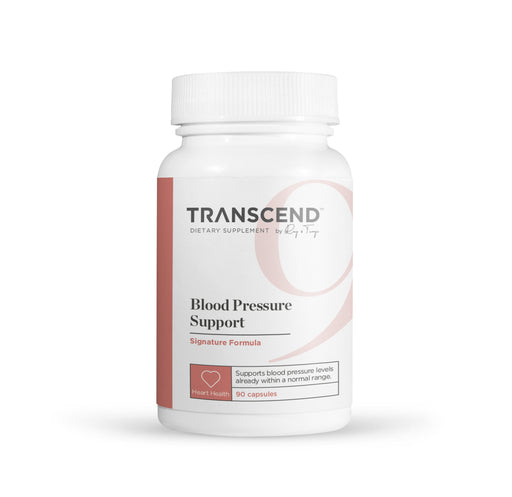
Acai Extract
Support with Increase blood antioxidant capacity Maintain proper cellular function Protect cardiovascular health The Acai Berry is a small deep ...
View full details
In an increasingly fast-paced world, many of us are prone to overthinking or worry, which can lead to stress that feels constant or overwhelming.
Although stress and anxiety are common, they shouldn't be ever-present, especially with the health implications of constant pressure. Making relaxation a priority may seem easy enough, but it requires a conscious effort. When we make calmness our natural default, we can reap the benefits of a relaxed state of mind.
The Subtle Dangers of Stress
Stress and anxiety can affect the body in subtle and not-so-subtle ways that change the way we feel about ourselves and others. Stress symptoms include:
Stress-Related Disease
Even those who lead healthy lives may be struck by diseases that they've worked hard to avoid. These ailments can come as a surprise, but often, their causes are linked to stress.
Stress can increase our heart rates, and chronic stress means a rapid heart rate can be sustained for an unhealthy amount of time. Heart disease and heart attacks can be related to stress since a rapid heart rate and increased stress hormones can elevate the risk of blood clots.
There’s also a lesser-known correlation between stress and Irritable Bowel Syndrome (IBS). IBS affects the large intestine and causes cramping, stomach pain, bloating, and diarrhea. Almost 60% of people who experience IBS also have a psychiatric disorder, like anxiety or depression.
Diabetes is also often linked to chronic stress. When we’re stressed, our blood sugar levels rise, and our bodies produce more adrenaline and glucose to help fight the perceived threat. In fact, men with chronic stress have a 45% higher risk of developing diabetes. We aren’t often exposed to the same life-threatening dangers as our ancestors were, which means our biological response to stress is often out of proportion: those increased blood sugar levels actually harm more than they help.
Activate Your Relaxation Response
When we train our minds to respond to stress more calmly and helpfully, we can avoid "fight or flight" in favor of a more useful relaxation response.
The best way to control your mind, body, and emotions is to focus on slowing and deepening your breath–some call it yoga breathing–for a few minutes at a time. Focusing on the breath helps to slow the mind, decrease heart rate, stabilize blood pressure, and let go of tension in the muscles. Breath-control activates natural healing properties and spreads them throughout the body, which also improves focus and increases energy levels.
Conscious Relaxation Techniques
Relaxing doesn’t mean watching Netflix for an entire day, nor does it mean sleeping all day and night. It sounds counterintuitive, but relaxation requires conscious effort. When we relax, our bodies can recharge and better enable us to fight stress and reduce its effect on the body.
Try adding these simple practices to your daily routine:
For more tips on relaxation, follow step number 2 in TRANSCEND’s 9 Steps to Living Well Forever!
You might have noticed that “watching TV” isn’t on our list. That's because this pastime is actually more likely to cause chronic stress than reduce it. While television offers an undeniably tempting form of escapism, the focus required to keep up with your favorite serial drama can also keep your brain from fully relaxing.
Live a Happier, Healthier, and Longer Life
Stress may be an inevitable part of life, but we can lower our risk of developing stress-related illnesses with stress management practices.
As always, if you notice that your stress levels seem abnormally high and aren’t improving, consult your doctor for advice.

Support with Increase blood antioxidant capacity Maintain proper cellular function Protect cardiovascular health The Acai Berry is a small deep ...
View full details
Healthy Eyes, Brain and Nervous System Potent carotenoid antioxidant Promotes healthy anti-inflammatory response Formulated with Zanthin® for eye...
View full details
Beta-Sitosterol Complex 1000 mg * (Plant phytosterols, including beta-sitosterol, campesterol, stigmasterol, brassicasterol, and sitostanol.) Main...
View full details
A Kurzweil + Grossman Formula Heart Health Maintain normal blood pressure Protect organ health Natural ingredients Blood pressure is composed of...
View full details
Leave a comment